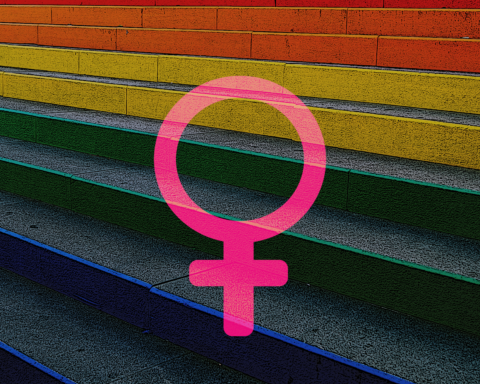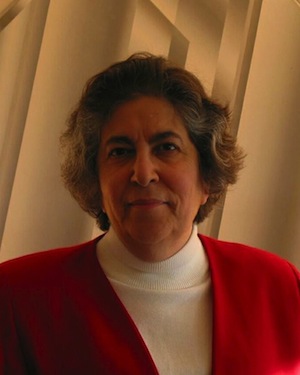Midrash on the Great Woman of Shunem and Palestinian Refugees

She wouldn’t be a refugee any more if she could come back to the home she had made. She’d left seven years ago, at the urging of the man of God, taking her son to another city — outside of Israel — until the famine passed. Now the boy stood beside her as a healthy young man, fit to inherit his mother’s wealth. But it had indeed been a rough seven years. The land they knew as Shunem was and had been under the control of the Israelite king and military, within the area assigned to the tribe of Issachar, and apparently the locals had spread into her fields while she was gone. She wasn’t at all sure that the king would honor her request.
*****
This second tale of the gadolah – “great woman” – of Shunem, contained in just six verses in 2 Kings 8, is a surprise to many regular readers of the Bible, even those who know her first story, in chapter 4. It’s intertwined with stories of the prophet Elisha — the “man of God” who understudied Elijah. I argue that there may be parallels in this story to the situation of Palestinian refugees in our time, especially when told from the Shunnamite woman’s point of view. But seeing them or not is all in the interpretation.
___________________________________________
The gadolah’s exile had been protective and provident, and if nothing else, this makes it fundamentally different from the situation of the women who have been exiled inside or outside modern Palestine.
___________________________________________
The first interpretive issue is whether she is indeed a conquered Canaanite or just an Israelite from a particular town. Scholars who accept the conquest theory of Israel’s origins, including the feminist Tikva Frymer-Kensky, [1] do not distinguish the residents of Shunem from those of the surrounding tribal lands. But if the Canaanites were not completely displaced at the time of Israel’s founding [2], it becomes significant that the gadolah speaks of “my own people” in her early dealings with Elisha (4:13).

What comes in between the gadolah’s two stories is war and famine. Dreadful famine, desperate enough for cannibalism. Interpretive tradition, especially the work of authoritative male scholars, tends to focus on how Elisha predicts and directs what happens, in whole and in part, on behalf of God. Probably the best-known part of these chapters is the fifth, in which Naaman, the commander of the Aramean army, hears from his Israelite slave, a captured young girl, about Elisha. The girl suggests the prophet might be able to cure Naaman of a skin disease (named, as usual, as leprosy). With his king’s permission, and bearing a letter of introduction to the king of Israel, Naaman goes to Elisha and is healed.
When war and famine have passed and the gadolah finally does return home in chapter 8, she walks in on a conversation between the king of Israel and Elisha’s servant Gehazi. The king has asked Gehazi to tell him stories of Elisha’s feats. He’s just relating how Elisha once revived a dead person, a young boy, to be exact, when the woman and her son present themselves to plead for the right to regain their home. Gehazi says “Here is the woman, and here is her son” (8:5b). The king asks the woman to confirm it, and she does, but we can imagine how her view of the story might differ from Gehazi’s, whether or not she could tell it freely to the king who held her fate in his hands.
*****
She took no credit for the son. She hadn’t asked for him. In fact, she had resisted the promise when Elisha offered it. She’d fed the man of God often enough, when he passed through her city on his regular preaching circuit, that he came to her house every time. She could see it was a good place for him to rest a while, perhaps to lay down his head. And she had the means, so she had her men build him his own room on the upper level, with a private entrance so he could come and go as he pleased. She respected the God he preached, it certainly wasn’t a bad idea to be in the prophet’s good graces, and it was just the right thing to do.

But he insisted on rewarding her for it. She told him she had all the wealth she needed. He offered to be her advocate with his king, or with the military, if she had any trouble. “I dwell among my own people,” she reminded him. They might be just a town ruled by a foreign king, but she was far from the only native of Shunem, and she would stand with her own if there was ever any trouble. And she went back to her work.
But no, Gehazi came running again with word from Elisha. They’d been talking about what to do for her. She was so tired she leaned in the doorway. And when she heard it, she closed her eyes and sighed. The man of God must have misunderstood again. He said that she would have a son by this time next year, old as her husband was, settled and full as her life was without children. She tried to explain it so he could understand. She had her fields for a legacy, and she knew what to do when the rain was too little, or too much, when there was rot in the barns or some fool let his cattle trample her crop. She had a balanced life and did not miss the worry for the life and health of a child. There were so many things that could go wrong with a child. She tried to explain that motherhood was something she’d never missed. [3]
___________________________________________
She tightened her grip on the prophet himself. “No! You got me into this, and by God you will get me through it.” Elisha winced, but he got up and went with her.
___________________________________________
But it happened just as the man of God had said. And she’d had the extra work and the extra worry, and had to smile and show him to Elisha each time he came through Well, he turned out to be a good sort of lad. He grew strong and straight, and he was mostly obedient. And she fell in love with him despite herself. He grew big enough to go to the fields with his father, to learn what to do and to be of some help. But he was still a boy, and boys are sometimes foolish. And things happen to them.
He’d told his father that his head hurt, so his father sent him home with one of the workers for his mother to take care of him. Just as she’d dreaded all along she would have to do. And there in her lap, he died. Much as she’d resisted, she couldn’t bear to see him lying there with the life gone out of him. So she went for the man of God.

She put the boy on Elisha’s bed in the upstairs room and shut the door. And she called to her husband to get one of the workers to bring a donkey, ready to ride out. It was no short distance. She’d heard he was at Mt. Carmel.
He saw her coming and sent Gehazi to find out why. She shrugged off the servant’s pleasantries. “I’m fine. We’re fine.” [4] “… or we will be,” she told herself, and kept going until she could lay hands on Elisha himself. She didn’t care if she grabbed him rudely; she would make him listen.
“You’ve returned my hospitality with heartache,” she told him. “This is what I meant when I begged you not to put me in such a position to love and to lose. And he finally saw the desperation in her eyes and understood.
He gave Gehazi his staff and told him to go straight to her house and put the staff on the boy’s face. But she tightened her grip on the prophet himself. “No! You got me into this, and by God you will get me through it.” Elisha winced, but he got up and went with her.
Gehazi ran on ahead with the staff, and he laid it on the boy as Elisha had said, but indeed it didn’t work. When Elisha arrived, he applied the power of his own body and breath directly, and the boy sneezed back to life. And his mother gathered him up and took him down to his own room. What he needed now she had learned to give him. (2 Kings 4:8–37)
*****
This “great woman”, we may note, is not the wife of a great man, but a woman who runs her own household and makes her own decisions. Her husband gets little more mention in the text than a servant. This woman, who may well not be an Israelite, might surprise many readers if she was allowed to tell her own story. We’ve been led to believe, in standard interpretations, that women were devalued and repressed in the ancient societies depicted in the Bible. But women like this one keep popping up, grabbing prophets and kings by their tender parts and demanding recognition. These may have been unusual interactions with elite men, but maybe the women didn’t have to be so pushy to be heard in everyday life.
 Hebrew Testament scholar Carol L. Meyers first traced this view of a robust ancient womanhood from archaeological findings and parallels in similar societies in her 1988 book Discovering Eve. The developments she’s tracked since then, especially expanded work in “household archaeology,” or exploration of ordinary people’s homes and towns, took the notion so much further that Meyers published a completely new book in 2013, Rediscovering Eve.
Hebrew Testament scholar Carol L. Meyers first traced this view of a robust ancient womanhood from archaeological findings and parallels in similar societies in her 1988 book Discovering Eve. The developments she’s tracked since then, especially expanded work in “household archaeology,” or exploration of ordinary people’s homes and towns, took the notion so much further that Meyers published a completely new book in 2013, Rediscovering Eve.
In the November/December 2014 Biblical Archaeology Review, [5] Meyers makes several points about these developments that are relevant to the Shunnamite gadolah. She notes that “More than 90 percent of the ancient Israelite population was agrarian throughout [this period],” [6] small-scale independent farmers who grew what would feed their own families, not cash crops. And just because there is a division of labor by gender does not presume that one gender’s work is less recognized. Down to the present day, subsistence farmers and homesteaders can hardly afford to undervalue the labor contributed by any member of the family. Women are pictured as partners in the enterprise, whether gathering roots and seeds on an African savannah, or growing and preserving the produce of kitchen gardens and hunting and fishing trips, with their men or alone, in off-grid Alaska. [7]
___________________________________________
We’ve been led to believe, in standard interpretations, that women were devalued and repressed in the ancient societies depicted in the Bible. But women like this one keep popping up, grabbing prophets and kings by their tender parts and demanding recognition.
___________________________________________
Also, though Shunem is referred to as a city, few cities of this period would be what we would recognize as such. Instead they were “walled agricultural towns.” [8] Still, to be designated gadolah, the Shunammite woman had to be much more than a kitchen gardener. She might have established one of the larger, commercial estates that developed in her time, “especially in the northern kingdom of Israel,” according to Meyers. [9] Even as her story is told by men , she occupies a privileged class position. She has servants. She gives orders. She has what social scientists call “agency.”

Photo Credit: Erin Dunigan
The gadolah’s own agency may not have been as important to the king’s decision to grant her the right of returning to her home as was her connection to Elisha. Or maybe it was her showing him a boy who had not only come back to life, but grown and become strong over the years of warfare and famine at home. The gadolah’s exile had been protective and provident, and if nothing else, this makes it fundamentally different from the situation of the women who have been exiled inside or outside modern Palestine.
According to the United Nations Relief and Works Agency (UNRWA), some million and a half people, still less than a third of those registered with the UN as displaced Palestinians, live in 58 UN camps. [10] Some of the camps may actually be in the biblical Shunem, or near it, in modern Lebanon. Others are in Jordan, Syria, and within the contested areas of the West Bank, East Jerusalem, and Gaza. Since registration depends on having lived in Palestine between June 1946 and May 1948, it’s clear that these people have been away from their homes and livelihoods for generations. And of course, other Palestinians have emigrated to begin new lives, from scratch and without UN support, especially in Europe or the Americas.
The biblical gadolah might even have spent the seven years of her own exile in Gaza, which was then the land of the Philistines, with whom she’s said to have sojourned. With Shunem more than halfway up the length of what was then Israel, it’s startling to consider the trip she had made, and certainly clear how much it meant to her to get back home. [11]
*****
I don’t know what that king thought we needed with an escort for these last few steps home. I don’t know what my people might think of such a procession, led by a known officer of the king and carrying such goods. Certainly they could see that they were not goods I had brought from Philistia, but they could not know how hard the life had been there, what it had taken to keep my boy alive. My poor husband did not make it back.

Well, they were only the fruits of my own fields that we would have reaped together these seven years. I assumed the king had kept the share that would have been his. There was the little room I had built for the man of God, poking out on the roof of my house. I would have to see what the condition of the house was. I hoped none of my people had moved in, because the Israelite officer would not be likely to allow me to be kind in moving them out.
We were home, but it would be work to remake it our home, with our people and with our land, and we would still be under the shadow of the Israelites. It cannot not be our old life, but it will be home.
__________________________________
[1] Frymer-Kensky, Tikva, “The Shunnamite,” in Reading the Women of the Bible: A New Interpretation of Their Stories (New York:, Schocken Books, 2006), 64–73.
[2] For example, Joel Baden, in The Historical David: The Real Life of an Invented Hero (New York, HarperCollins, 2013) (Kindle Edition, 145-147), makes a case for just such a status for Gibeon, as attested in Joshua 9.
[3] Mary E. Shields, while not going as far as I have with interpolating the gadolah’s feelings about motherhood, does identify the insistence that she must want a son with a “patriarchal perspective”; Shields, “Subverting a Man of God, Elevating a Woman: Role and Power Reversals in 2 Kings 4,” in Athalya Brenner, ed., Samuel and Kings: A Feminist Companion to the Bible, second series (Sheffield, England: Sheffield Academic Press, 2000) 122-3. Shields has also noted that the language given to the gadolah here (4:16b) is actually used elsewhere in the Bible only in two contexts of rape; “Subverting,” 118, and with a slight correction as to the Hebrew particle in “Self-Response to ‘Subverting …,’” 125.
[4] The word the gadolah is recorded as saying here, in verse 4:26, as well as to her husband in verse 23, is “shalom,” which often means much more than “fine.”
[5] Meyers, Carol L.,“‘Eves’ of Everyday Ancient Israel,” Biblical Archeology Review (2014) 40:6, 51-54, 66, 68. http://www.biblicalarchaeology.org/bar-issues/november-december-2014/#toc
[6] Meyers, “‘Eves,’” 54.
[7] See, for instance, “Alaska, the Last Frontier” http://www.discovery.com/tv-shows/alaska-the-last-frontier or “Life Below Zero,” especially the Hailstone family http://channel.nationalgeographic.com/channel/life-below-zero/articles/chip-hailstone/: accessed 10/31/14.
[8] Meyers, “‘Eves,’” 54.
[9] Meyers, “‘Eves,’” 66.
[10] http://www.unrwa.org/palestine-refugees; accessed 10/26/2014.
[11] “Israel and Judah,” New Interpreter’s Bible (Nashville: Abingdon Press, 2003) Map 6.
AUTHOR BIO: Barbara refers to herself as “the Irreverend bks,” a freelance ruling elder in validated ministry as Writer in Residence in the Presbytery of the Palisades. She has long been engaged in exploring the theological side of PC(USA) social justice, now mostly online, and was the last national moderator of Semper Reformanda (Always Being Reformed). In addition to pulpit supply and writing novels and essays, she is developing and publishing a series of stories of strong women from the Bible, retold as the women of other Bible times might have told them to each other, under the title Stronger Than Sin or Silence.
Read more articles from this issue, “Hearing the Voices of Peoples Long Silenced”: Gender Justice 2014!






Unbound Social